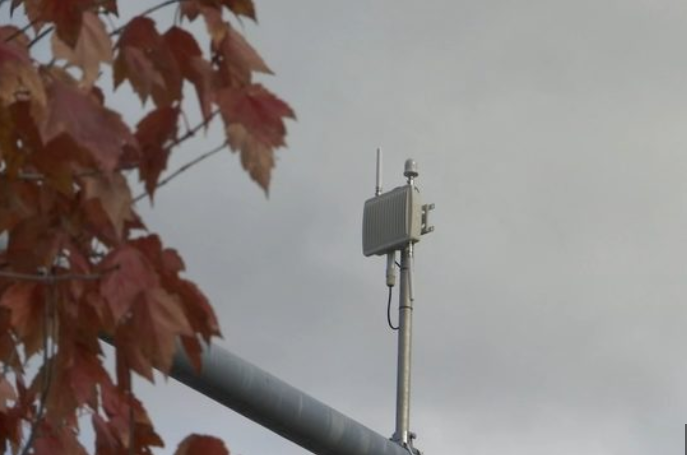Boston 25 News: Local City Developing Traffic Lights that Can Talk to Cars

by: Bob Dumas
DOVER, N.H. - Smart vehicles and driverless cars are filled with state-of-the-art technology to prevent collisions and keep cars in their lanes. One New Hampshire city is taking this to the next level, developing a system so those cars can talk to traffic lights.
Much of the work on these traffic lights in Dover, NH is being done by students from the University of New Hampshire.
Boston 25 News recently went for a ride with researchers from the UNH Connectivity Research Center as they tested the system.
“It’s essentially a stop light that has some intelligence behind it now, and it has a radio that communicates out the information,” explained research project manager Christina Dube.
As the car approached intersections, a tablet would display the amount of time before a light would change from one color to the next.
This is the first project of its kind in New England and is part of a national push to create at least one traffic corridor in each state that has this type of capability by 2020.
Massachusetts traffic officials told us there is no plan at this time to start this type of project in the state.
Dube said transportation officials can use the data this system collects today, and even more so, tomorrow.
“I could see that as cities are updating their infrastructure, because a lot of the infrastructure is aging, that they will slowly implement this technology, and that over time, stop lights in even the most rural locations will have some sort of mechanism to communicate to vehicles, because, certainly autonomous vehicles are coming.”
Ethan Wamsley, a senior at UNH who wrote the app that powers this system, added, “In the future, it is really going to enable autonomous vehicles to be able to accurately go thru intersections. Right now, they have to rely on using visual sensors which isn’t as accurate or efficient.”
The next phase of testing will be to see how drivers respond to it.
“We’re trying to figure out how much information overloads the driver and at what point they can’t refocus on the intersection. We’re trying to see the tipping point,” explained Wamsley.
Another potential benefit is environmental, as a car might idle less and reduce emissions if it knows it is going to be waiting a few minutes for a light to change.
Link to the video at Boston25 News.


